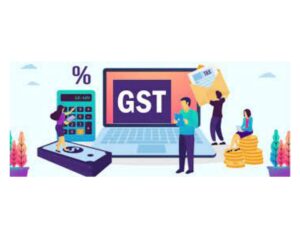Which state does not accept GST in India?
User Intent
Users searching for this topic likely want to know if any state in India has rejected the Goods and Services Tax (GST) and the reasons behind it. This article will provide a detailed breakdown of the issue, covering its definition, applications, benefits, limitations, and comparisons.
Introduction
The Goods and Services Tax (GST) is a unified tax system implemented in India on July 1, 2017. It replaced multiple indirect taxes with a single tax structure, streamlining the taxation process across the country. However, one state—Jammu & Kashmir—initially did not accept GST due to its special constitutional status. Eventually, it adopted the GST regime after making certain amendments. This article explores why Jammu & Kashmir initially hesitated, its impact, and how it compares with other states.
Definition of GST
GST is an indirect tax that applies to the supply of goods and services. It is a destination-based tax, meaning the tax is collected where goods or services are consumed rather than where they are produced. GST is divided into three categories:
- CGST (Central GST): Collected by the central government.
- SGST (State GST): Collected by the state government.
- IGST (Integrated GST): Applied on interstate transactions and collected by the central government.
GST aims to create a single national market by eliminating tax barriers between states.
Application of GST in Jammu & Kashmir
Initially, Jammu & Kashmir did not adopt GST due to Article 370, which granted it special autonomy. The state had its own constitution and taxation system, separate from the rest of India. Some key concerns raised by stakeholders in the state included:
- Loss of Fiscal Autonomy – The state feared losing control over its taxation policies.
- Impact on Local Businesses – Traders and manufacturers were uncertain about how GST would affect their existing tax structures.
- Special Status Issues – The people of Jammu & Kashmir were apprehensive that adopting GST would dilute their state’s special provisions.
However, after prolonged discussions and amendments, the Jammu & Kashmir Legislative Assembly passed the GST Bill on July 7, 2017. This made it the last Indian state to join the GST regime.
Benefits of GST Implementation
Although Jammu & Kashmir initially resisted, adopting GST has brought significant advantages:
1. Elimination of Multiple Taxes
Before GST, businesses had to comply with various state and central taxes. GST replaced these with a single tax structure, reducing compliance burdens.
2. Boost to Trade and Commerce
The previous tax system created barriers for businesses in Jammu & Kashmir when trading with other states. GST simplified the process and promoted interstate trade.
3. Uniform Pricing Across India
With GST, tax rates became consistent nationwide, reducing price disparities and benefiting consumers.
4. Increased Revenue Collection
The state witnessed improved tax compliance, leading to higher revenue generation.
5. Growth of E-commerce and Digital Economy
GST facilitated online businesses by removing entry taxes and easing compliance for e-commerce platforms.
Limitations of GST in Jammu & Kashmir
Despite its advantages, GST also brought challenges for Jammu & Kashmir:
1. Initial Resistance from Traders
Small businesses in the state were unfamiliar with GST procedures and faced difficulties adapting to the new tax structure.
2. Impact on Local Handicraft Industry
Jammu & Kashmir’s famous handicraft sector, including pashmina, papier-mâché, and carpets, had to adjust to new tax norms, affecting its pricing and competitiveness.
3. Compliance Burden
Filing GST returns regularly became a challenge for smaller traders unfamiliar with digital taxation.
4. Concerns Over Fiscal Autonomy
Even though GST was eventually adopted, some stakeholders felt that the state lost its independent taxation rights.
Comparative Analysis of GST Adoption in Jammu & Kashmir vs Other States
| Factors | Jammu & Kashmir | Other Indian States |
|---|---|---|
| Initial Resistance | Yes, due to Article 370 | No major resistance |
| Date of GST Adoption | July 7, 2017 | July 1, 2017 |
| Special Taxation Powers | Had its own tax system pre-GST | Followed central tax laws |
| Impact on Local Businesses | High, especially handicrafts | Moderate |
| Revenue Collection Growth | Increased over time | Increased immediately |
Conclusion
Which state does not accept GST in India?
While Jammu & Kashmir was the last state to accept GST, it ultimately joined the nationwide tax reform. The adoption of GST streamlined taxation, improved business conditions, and enhanced revenue collection. However, challenges such as compliance burdens and industry adjustments remain. With ongoing reforms, the GST framework continues to evolve to meet the needs of businesses and taxpayers across India.
FAQs
1. Why did Jammu & Kashmir initially not accept GST?
Jammu & Kashmir had special taxation rights due to Article 370. The state feared losing its fiscal autonomy and its independent tax structure.
2. When did Jammu & Kashmir adopt GST?
The Jammu & Kashmir Legislative Assembly passed the GST Bill on July 7, 2017, making it the last state to adopt GST in India.
3. How did GST benefit Jammu & Kashmir?
GST eliminated multiple taxes, improved trade, increased revenue collection, and promoted business growth in the state.
4. What were the challenges of implementing GST in Jammu & Kashmir?
Some key challenges included resistance from local traders, impact on the handicraft industry, compliance difficulties, and concerns over loss of fiscal autonomy.
5. How does Jammu & Kashmir’s GST adoption compare with other states?
Unlike other states, Jammu & Kashmir had unique constitutional challenges. However, once it adopted GST, it gradually aligned with the national tax structure, improving business operations and tax compliance.
To Visit https://www.gst.gov.in/
For further details access our website https://vibrantfinserv.com/
Which state does not accept GST in India?

